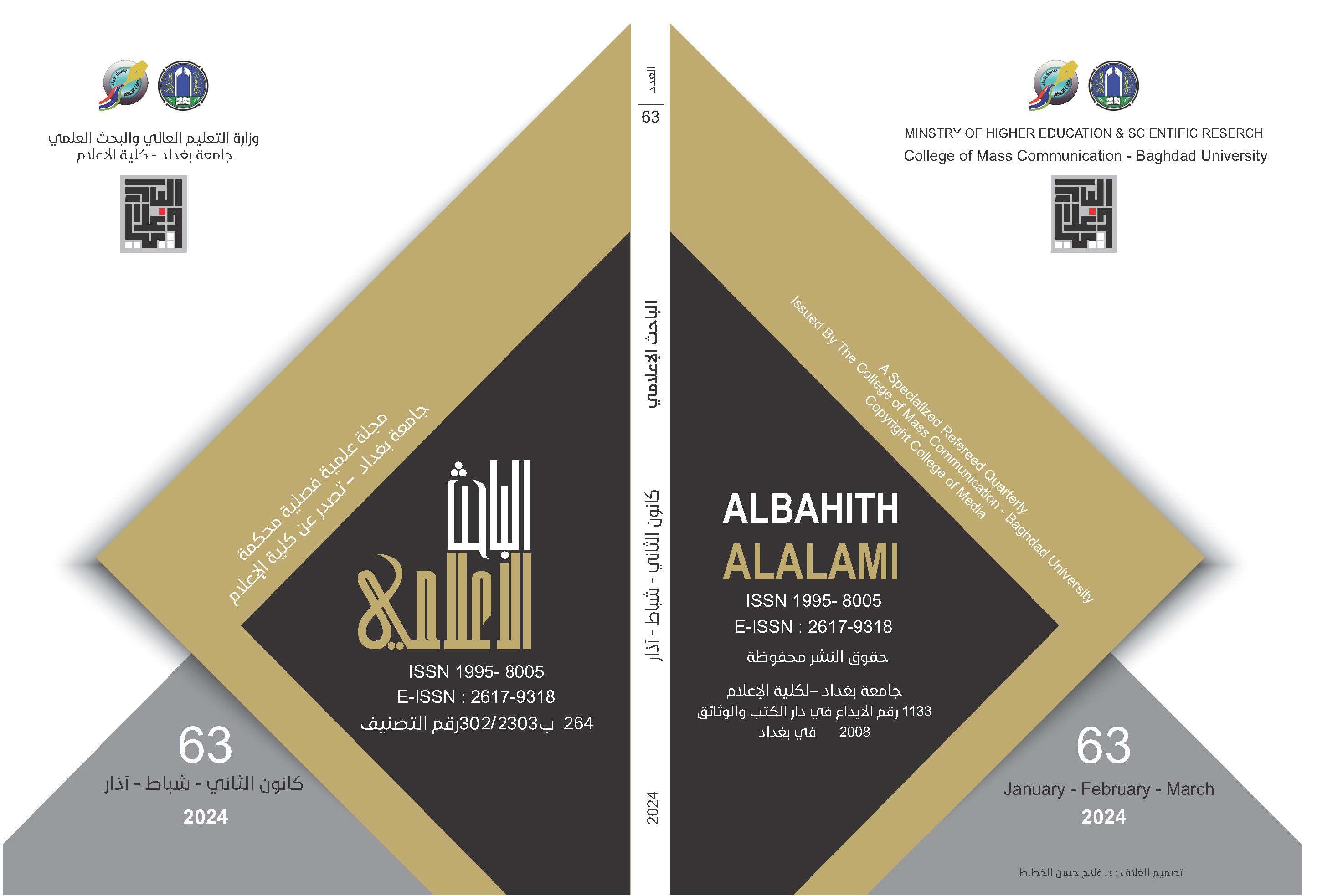Rhetorical Unconsciousness, Productive Discursive Repression, and Political Psychoanalysis
DOI:
https://doi.org/10.33282/abaa.v16i63.1137Keywords:
Rhetorical tradition, Unconsciousness, Political psychoanalysis, Intentional persuasion, Political cultureAbstract
The history of rhetorical practice has been a history of intentional persuasion, but philosophers and psychologists for centuries have argued, and persuasively so, that much of human subjectivity, and thus much of human persuasion, has profound unconscious dimensions that lead to forms of personal and political pathology. To better understand the roots of these pathologies, which lead to madness, violence and war, this essay explores rhetorical unconsciousness in ways that go far beyond simple notions such as “subliminal advertising,” or the conscious manipulation of unconsciousness, to explain how our very languages and the vast majority of beliefs derived from them are normally unconscious. To accomplish this task, I first engage in a general discussion of rhetorical unconsciousness, then summarize a conceptual framework for identifying different aspects of the same (i.e., the unsayable, the unspoken, and the unspeakable), concluding with a brief discussion of how the analysis of unspeakable things can serve as the basis for a new form of political psychoanalysis.
Downloads
References
Biesecker, B. A. (1998). Rhetorical studies and the “new” psychoanalysis: What's the real problem? Or framing the problem of the real. Quarterly Journal of Speech, 84(2), 222-240. https://doi.org/10.1080/00335639809384215
Bizzell, P., Herzberg, B., & Reames, R. (2020). The Rhetorical Tradition: Readings from Classical Times to the Present (3 ed.). Bedford/St. Martin's.
Bruner, M. L. (2005). Carnivalesque Protest and the Humorless State. Text and Performance Quarterly, 25(2), 136-155. https://doi.org/10.1080/10462930500122773
Bruner, M. L. (2019). Rhetorical Unconsciousness and Political Psychoanalysis (T. W. Benson, Ed.). University of South Carolina Press. https://doi.org/10.2307/j.ctv7r41s6
Cates, C., Bruner, M. L., & Moss, J. T., III. (2018). Recuperating the Real: New Materialism, Object-Oriented Ontology, and Neo-Lacanian Ontical Cartography. Philosophy & Rhetoric, 51(2), 151-175. https://doi.org/10.5325/philrhet.51.2.0151
Chiesa, L. (2007). Subjectivity and otherness : A philosophical reading of Lacan. MIT Press Cambridge, MA.
Cooper, M. D. (1984). The implications of Foucault's archaeological theory of discourse for contemporary rhetorical theory and criticism. The Pennsylvania State University.
Critchley, S. (2009, June 29). Being and Time, part 4: Thrown into this world. https://www.theguardian.com/commentisfree/belief/2009/jun/29/religion-philosophy
Derrida, J. (1993). Writing and Difference. Chicago IL: University of Chicago Press.
Eisenstein, E. L. (1980). The Printing Press as an Agent of Change (Vol. 2). New York NY: Cambridge University Press. https://doi.org/10.1017/CBO9781107049963
Eisenstein, P., & McGowan, T. (2012). Rupture On the Emergence of the Political. Northwestern University Press. https://doi.org/10.2307/j.ctv43vtq0
Fink, B. (1995). The Lacanian subject: Between language and jouissance. Princeton NJ: Princeton University Press.
Foucault, M. (1982). The Archaeology of Knowledge. New York NY: Vintage.
Foucault, M. (1990). The History of Sexuality: An introduction (Vol. 1). New York NY: Vintage.
Foucault, M. (2001). Fearless speech, ed (Vol. 169).
Freud, S. (1959). Group Psychology and the Analysis of the Ego. New York, NY: W.W. Norton & Company.
Freud, S. (1961). Civilization and Its Discontents (J. Strachey, Ed. & Trans.). New York, NY: W.W. Norton & Company.
Freud, S. (1963). General Psychological Theory. New York NY: Collier Books.
Gunn, J. (2004). Refitting fantasy: psychoanalysis, subjectivity, and talking to the dead. Quarterly Journal of Speech, 90(1), 1-23. https://doi.org/10.1080/0033563042000206808
Havelock, E. (1986). The Muse Learns to Write: Reflections on Orality and Literacy from Antiquity to the Present. Yale University Press.
Hegel, G. W. F. (1959). Encyclopedia of philosophy (G. E. Müller, Trans.). Philosophical Library.
Heidegger, M. (1962). Being and Time. New York NY: Harper & Row.
Lacan, J. (1981). The Four Fundamental Concepts of Psycho-Analysis. New York, NY: W.W. Norton & Company.
Lacan, J. (2006). Ecrits (B. Fink, Trans.). New York NY: W.W. Norton & Company.
Laclau, E. (2005). On populist reason. London: Verso.
Laclau, E. (2006). Why Constructing a People Is the Main Task of Radical Politics. Critical Inquiry, 32(4), 646-680. https://doi.org/10.1086/508086
Lemaire, A. (1977). Jacques lacan (D. Macey, Trans.). Boston MA: Routledge.
Lévi-Strauss, C. (1963). Structural anthropology. New York: Basic Books.
Liszka, J. J. (1996). A general introduction to the semiotic of Charles Sanders Peirce. Indiana University Press.
Lundberg, C. (2012). Lacan in Public: Psychoanalysis and the Science of Rhetoric. Tuscaloosa AL: The University of Alabama Press.
Nietzsche, F. (2010). On Truth and Untruth: Selected Writings. New York NY: HarperCollins.
Ong, W. J. (1982). Orality and Literacy. New York NY: Routledge.
Riker, J. H. (2017). Exploring the life of the soul: Philosophical reflections on psychoanalysis and self psychology. New York NY: Lexington Books.
Santner, E. L. (2001). On the psychotheology of everyday life: Reflections on Freud and Rosenzweig. Chicago IL: The University of Chicago Press.
Saussure, F. d. (1998). Course on General Linguistics (R. Harris, Trans.; C. Bally, A. Sechehaye, & A. Riedlinger, Eds.). Open Court LaSalle, IL.
Sloterdijk, P. (1987). Critique of Cynical Reason (M. Eldred, Trans.). Minneapolis MN: University of Minnesota Press.
Toulmin, S. E. (1958). The Uses of Argument. New York, NY: Cambridge University Press.
Zizek, S. (1989). The Sublime Object of Ideology. London: Verso.
Zizek, S. (2002). Welcome to the Desert of the Real. London: Verso.
Zizek, S. (2003). The Puppet and the Dwarf. Cambridge MA: The MIT Press.
Žižek, S. (2006a). Against the Populist Temptation. Critical Inquiry, 32(3), 551-574. https://doi.org/10.1086/505378
Žižek, S. (2006b). Schlagend, aber nicht Treffend. Critical Inquiry, 33(1), 185-211. https://doi.org/10.1086/509751
Žižek, S. (2007). How to read Lacan (First American edition ed.). W.W. Norton & Co. New York.
Downloads
Key Dates
Received
Revised
Accepted
Published
Issue
Section
License
Copyright (c) 2024 Michael Lane Bruner

This work is licensed under a Creative Commons Attribution 4.0 International License.
Authors retain copyright and grant the journal right of first publication with the work simultaneously licensed under a Creative Commons Attribution License (CC BY 4.0) that allows sharing the work with recognition of authorship and initial publication in ABBA journal.


















